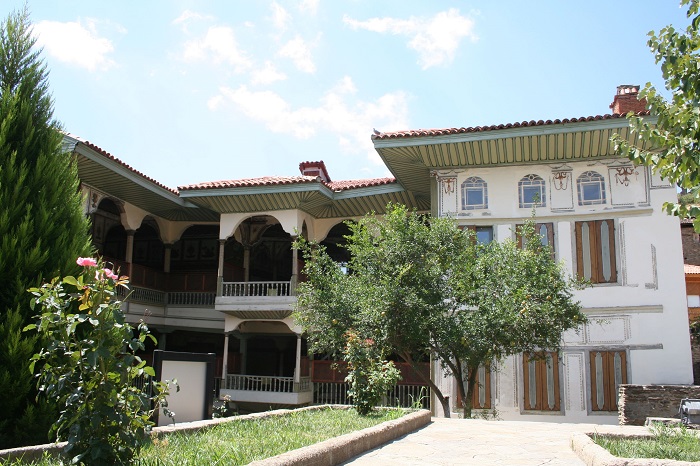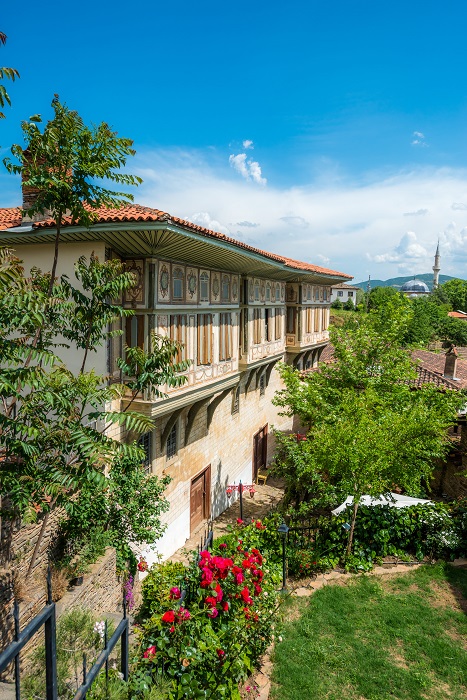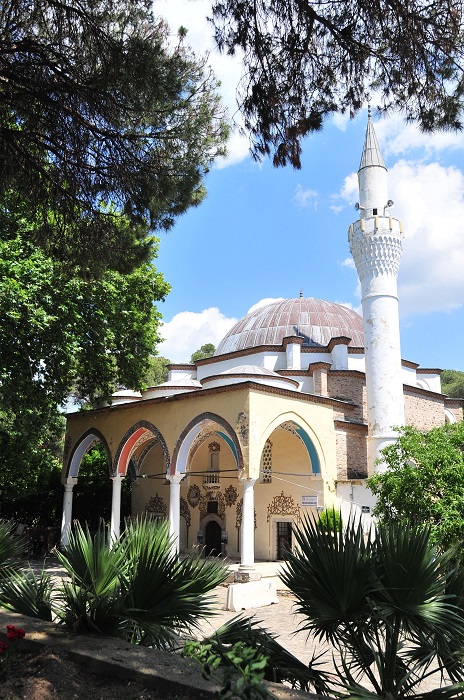The historical Birgi village of the İzmir province in Türkiye will become a green destination under the SENTRUM Project (Center for Tourism Practices Based on Sustainable Energy) conducted with the collaboration of the United Nations Development Program (UNDP), Türkiye’s Ministry of Tourism and Culture, Türkiye Tourism Promotion and Development Agency (TGA), and Enerjisa Enerji.
SENTRUM was initiated by the United Nations Development Program (UNDP), Türkiye’s Sabancı University and energy company Enerjisa in Türkiye’s Ayvalık / Küçükköy district to transform small villages into sustainable green destinations. The main objectives of the SENTRUM Project are to protect cultural and natural values, contribute substantially to community-based tourism with energy efficiency and renewable energy practices, and meet international sustainable destination criteria in every place where this project is implemented.
Birgi, which has been awarded “Best Rural Tourism Destination” by UNWTO in 2021, will undergo a series of projects of SENTRUM teams, where capacity development studies, renewable energy applications, and sustainable tourism strategy studies will be carried out, and training will be organised for local people and stakeholders. In this regard, a designated public building will be transformed into a green building by renewing its energy infrastructure, destination-oriented routes will be prepared, and an e-charging station will be established.
The project will pioneer a destination transformation in Birgi that aligns with the GSTC (Global Sustainable Tourism Council) destination criteria. It will conduct a climate risk assessment to determine the risks and adaptation measures affecting the current and future tourism destination. In addition, it will also analyse visitors’ carrying capacity to avoid putting pressure on its social, natural and cultural heritage and create a branding and marketing strategy for Birgi. Moreover, the SENTRUM project will conduct current situation analyses, develop action plans, and carry out capacity development activities on issues such as gender equality, the employability of women and youth, and internship opportunities for tourism vocational high schools and university students. Besides creating walking and cycling routes, it is planned to encourage environmentally friendly transportation and conduct energy audits in accommodation facilities and public buildings.
About Birgi
With more than five thousand years of history and its classical Seljuk and Ottoman houses, Birgi has been listed among the ‘Best Tourism Villages of 2022’ by the United Nations World Tourism Organization (UNWTO). Located in the middle of the most fertile basins in Türkiye’s western Aegean region, Birgi features tree-shaded cobblestone streets and traditional houses and structures dating to the 12th century. The village is seven kilometres from the town of Ödemiş in the İzmir province. It attracts local and foreign tourists due to its proximity to Ephesus, a UNESCO World Heritage Site, as well as to Şirince, famous for its fruit wines, and holiday resorts such as Çeşme, Alaçatı and Seferihisar.
Picturesque Birgi has a storied settlement history that dates back to 3000 BC. Ruled by the Phrygians, Lydians and Persians, Birgi was part of the Pergamon kingdom and the Roman and Byzantine Empires, respectively. The village was the capital of the Aydınoğulları Principality during the Anatolian Principalities Period. In 1426, Birgi came under Ottoman rule and continued to be an administrative and cultural centre until the 17th century.
Birgi contains numerous historical structures, including tombs, madrasahs, mosques, fountains, baths, and libraries—many of these date from the Anatolian Principalities and Ottoman periods. Housing more than 200 registered works, Birgi stands out as a riveting open-air museum. The Ulu Mosque (Aydınoğlu Mehmet Bey Mosque), erected during the Anatolian Principalities period, is among the most magnificent examples of the era’s 18th-century civil architecture. The Çakırağa Mansion, the İmam Birgivi Tomb, the Sandıkoğlu Mansion, the Dervişağa Mosque and the Ümmü Sultan Şah Tomb are also notable structures in the village.
Birgi was declared ‘a protected area’ in 1996. In addition to being the first protected village, Birgi was included on the Tentative List of UNESCO World Heritage Sites in 2012. Furthermore, efforts are underway for Birgi to join Türkiye’s Cittaslow (Slow City) network. Birgi is known for its lush nature, local cuisine, and historic past. Visitors to this charming village can also enjoy the opportunity to chat with village residents—in authentic cafes or courtyards shaded by venerable plane trees—and learn about Birgi’s culture and history.
About SENTRUM: Center for Tourism Practices Based on Sustainable Energy (SENTRUM) is a project initiated by Enerjisa and UNDP. The first phase of the Project was completed in Küçükköy village of Ayvalık, Balıkesir in November 2022. The project aims to contribute to social, environmental and economic transformation in the field of sustainable tourism, support community-based tourism and economic development by using renewable energy sources and increasing awareness about energy efficiency, create a “Green destination model” that can be applied throughout Türkiye and create an infrastructure in the region for GSTC sustainable destination criteria. For further details: www.sentrum.com.tr ///nCa, 15 June 2024 (in cooperation with the Embassy of Türkiye to Turkmenistan)


